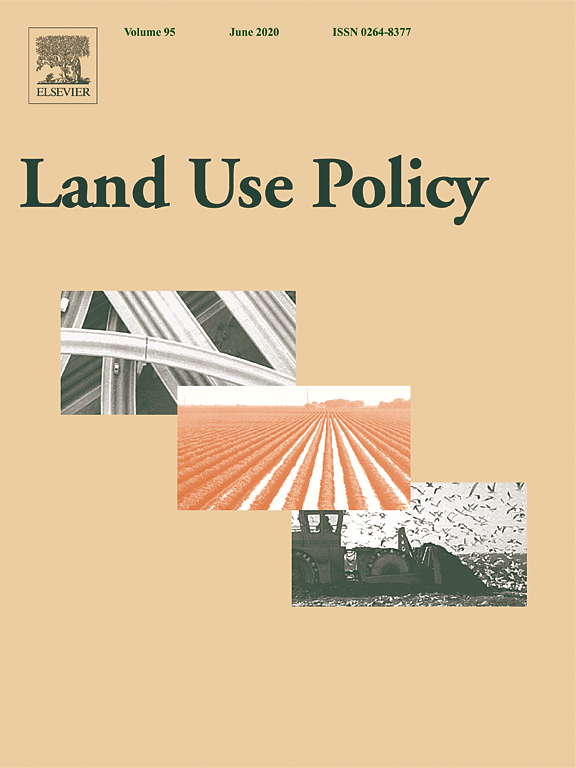Location
Land Use Policy is an international and interdisciplinary journal concerned with the social, economic, political, legal, physical and planning aspects of urban and rural land use. It provides a forum for the exchange of ideas and information from the diverse range of disciplines and interest groups which must be combined to formulate effective land use policies. The journal examines issues in geography, agriculture, forestry, irrigation, environmental conservation, housing, urban development and transport in both developed and developing countries through major refereed articles and shorter viewpoint pieces.
Land Use Policy aims to provide policy guidance to governments and planners and it is also a valuable teaching resource.
ISSN: 0264-8377
Members:
Resources
Displaying 231 - 235 of 279Small-scale land acquisitions, large-scale implications: Exploring the case of Chinese banana investments in Northern Laos
The scholarly debate around ‘global land grabbing’ is advancing theoretically, methodologically and empirically. This study contributes to these ongoing efforts by investigating a set of ‘small-scale land acquisitions’ in the context of a recent boom in banana plantation investments in Luang Namtha Province, Laos. In relation to the actors, scales and processes involved, the banana acquisitions differ from the state-granted large-scale land acquisitions dominating the literature on ‘land grabbing’ in Laos.
Spatial information in European agricultural data management. Requirements and interoperability supported by a domain model
Data compatibility and system interoperability are fundamental for crosswalks and collaboration between domains. The most frequently used references for information sharing are time and location. In order to understand the requirements, fundamental processes, and core information concepts of a domain, a comprehensive, but standardised documentation is needed. In spatial data infrastructures models presented in Unified Modelling Language (UML) are widely used to facilitate the uptake of standards and valorise best practices of various communities.
Who are forest-dependent people? A taxo nomy to aid livelihood and land use decision-making in forested regions
The relationship between forests and people is of substantial interest to peoples and agencies that govern and use them, private sector actors that seek to manage and profit from them, NGOs who support and implement conservation and development projects, and researchers who study these relationships and others. The term ⿿forest-dependent people⿿ is widely used to describe human populations that gain some form of benefits from forests.
Fine-grained detection of land use and water table changes on organic soils over the period 1992⿿2012 using multiple data sources in the Drömling nature park, Germany
The construction of consistent time series of land use presents a key challenge when accounting for elective land use-based activities under the Kyoto Protocol (wetland drainage and rewetting (WDR), cropland management (CM) and grazing land management (GM)), in which current land use-driven greenhouse gas emissions are compared to a reference situation in 1990. This case study is the first to demonstrate the feasibility of using high-resolution land-use proxies from different datasets for Kyoto accounting in a data-rich case study region in Germany.
Taking context into account in urban agriculture governance: Case studies of Warsaw (Poland) and Ghent (Belgium)
This article explores the role of local particularism in relation to the global interest in urban agriculture (UA). A growing movement is advocating UA, but future prospects are limited by variability, unclear expectations, vague responsibilities and leadership in the UA movement. We wonder whether the poor understanding of UA governance is associated with a public discourse and academic literature that too easily adopt the generic and universally claimed benefits.



